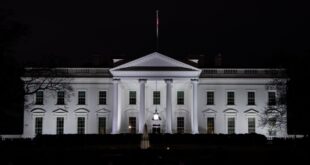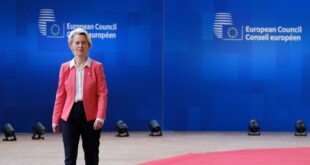Iraqi Prime Minister Haider Al-Abadi arrived to Riyadh on Saturday to attend inaugural meeting of the Saudi-Iraqi Coordination Council, a body said to cover two countries’ cooperation in political, economic, security and cultural fields.
Meanwhile, in Baghdad Saudi Oil Minister Khalid al-Falih’s met with his Iraqi counterpart Jabar al-Luaibi, where the two countries agreed to cooperate on implementing the Organization of Petroleum Exporting Countries (OPEC) decisions to curb global oil supply, Iraq’s Oil ministry said in a statement.
The oil output curbing agreement is doubly significant as similar agreement was reached earlier this month between Saudis and Russians during king Salman’s visit to Moscow which helped to boost global oil prices. Saudi Arabia is the largest, and Iraq second largest OPEC producer.
Moreover, following Kurdish referendum which Baghdad deems illegal, Iraqi government has in the past week carried out military operations to retake the disputed oil-rich Kirkuk region, held by Kurds since 2014.
Despite the crisis between Erbil Regional Government (KRG) and Baghdad central government triggered by Iraqi government military action against KRG, Russian biggest oil company Roseneft decided to take majority control of the main Kurdish pipeline, leaving 40 percent to the current operator KAR.
Saudi Arabia is making great efforts to boost its relations with Iraq, in attempt to weaken Iranian influence in the country. Economic support for Iraqi war-ravaged economy is an area where both countries’ are finding common interest. Saudi Arabia seeks to play a greater role in the post-ISIS Iraq, while Iraq needs massive investments to rebuild and develop after more than a decade of war, in particular the ISIS destruction.
The attempts to mend relations started in 2015 when Saudi Arabia reopened its embassy in Baghdad after 25 years of detente, following Iraqi invasion of Kuwait in 1990 under Saddam Hussein.
On Wednesday Saudi Flynas’ commercial airplane landing in Baghdad, for the first time in 27 years was additional signal of improved relations. Along with lack of support for Kurdish separatism it also signals tacit acknowledgement that war is nearing its conclusion and policy priority is likely shifting toward securing mutually beneficial economic interests. Saudi Arabia also wants to make sure that its economic power is used to help curb Iran’s influence in Iraq, and to bring the Arab country back into the Arab fold.
As May 2018 Iraqi elections are fast approaching moving at rapid pace is critical. Al-Abadi’s success in reaching a compromise with part of the Kurdish leadership and preventing of splitting of the country and the extension of war, as ISIS is nearly defeated, makes him the key political figure in Iraq to focus on and support.
Significantly, coinciding with Abadi’s visit to Riyadh was the US Secretary of State, Rex Tillerson’s visit to Saudi capital, where he is reportedly trying to forge military alliance between Saudis and Iraqis against Iran. Ambitious goal that is as risky as it is complex, given Iraqi Shi’a majority, as well as the ongoing diplomatic crisis with Qatar which Tillerson is said to try to address and ameliorate during his Monday visit to Qatar.
Abadi on his part is on a regional tour of his own, where he is seeking to promote his vision of new Iraq and region focused on social and economic development. On Sunday al-Abadi continued his regional tour with a visit to Cairo, where he met Egyptian president in the early in the day, after which he continued to Amman to meet Jordanian monarch.
 Geostrategic Media Political Commentary, Analysis, Security, Defense
Geostrategic Media Political Commentary, Analysis, Security, Defense





